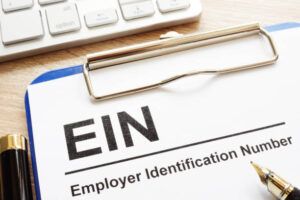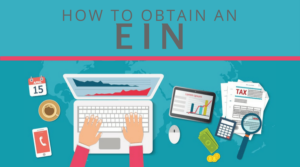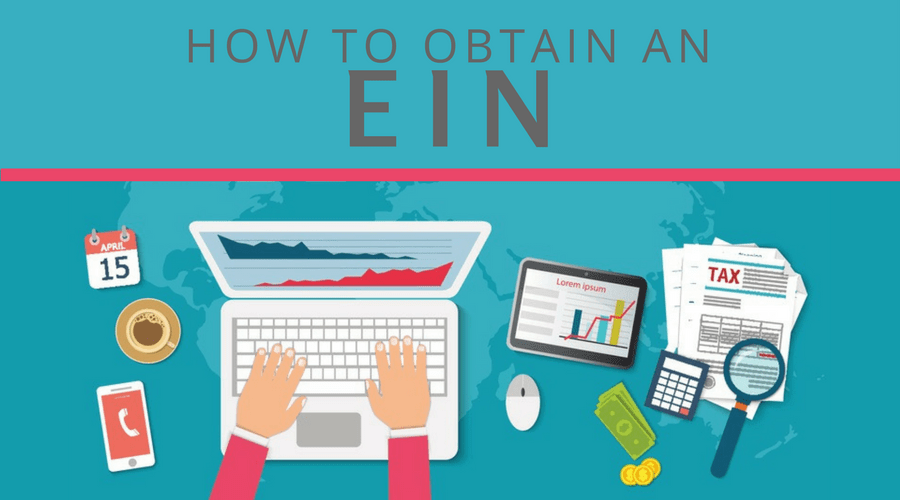EIN stands for Employer Identification Number. Similar to a social security number, it is a unique nine-digit number issued by the Internal Revenue Service (IRS). The number helps to give the business a separate identity. This enables the law to differentiate it from other practices and also help the business out in tax procedures. Its format is as follows- XX-XXXXXXX. But the major question that arises is- Can I have two EIN Numbers?

Akin to how the social security number aims to uniquely identify individuals of the state, Employer Identification Number (EIN) performs the same function. It enables the government to uniquely identify a business entity.
Another similarity that stands out between a social security number and an Employer Identification Number (EIN) is the fact that it never expires and is completely unassignable to another business entity. It will solely belong to one particular business for as long as it continues to exist and operate.
The requirements for getting an Employer Identification Number

There are no restrictions related to the type of business venture as to which can apply for an Employer Identification Number (EIN). LLCs, corporations, government agencies, partnership and even sole proprietorship business ventures with only the owner as the sole member can apply for an Employer Identification Number (EIN) as long as certain requirements are fulfilled-
- The location of the operation must be in the United States of America or within the territories of the United States of America.
- The one applying for it should be a taxpaying citizen.
- The one applying for it should have crucial identification documents like the social security number.
The number of employees in the business is also not a point of concern regarding applying for an Employer Identification Number (EIN) since LLCs, corporations, partnerships and sole proprietorships alike can apply for an Employer Identification Number (EIN).
Now, a common question might naturally arise in the mind regarding the need for an Employer Identification Number (EIN). The business entities pay their federal taxes online and to facilitate that, they need to make an Employer Identification Number (EIN). Furthermore, every taxpaying and functioning entity should necessarily have an Employers Identification Number (EIN). This enables them to perform basic functions like banking. The application process is also streamlined due to the ongoing digital sweep of literacy. One can simply apply for it without any hassle or tedious paperwork and fill out the easy to compile form on the website.
Tax Identification Numbers
A common point of misconception that often occurs while diving into the subject of Employer Identification Number (EIN) is the concept of Tax ID numbers. Contrary to popular beliefs, Tax ID numbers can most definitely be considered to be a synonymous term for the Employer Identification Numbers.
Although, if it comes to minute details, a tax Id number is a generic term that is used for identifying taxpaying individuals in the US. On the other hand EIN identifies taxing business entities. This is the main subtle point of difference between them.

Being a generic term, TIN carries four names other than EIN under its umbrella-
- Social Security Number (SSN)- A SSN or the Social Security Administration is provided to every citizen of the USA. Only, if one meets the determined prerequisites.
- Individual Taxpayer Identification Number (ITIN)- An ITIN is issued by the Internal Revenue Service (IRS). It is issued specifically to those taxpayers who for some reasons do not meet the requisites of the SSN and cannot file for it.
- Adoption Taxpayer Identification Number (ATIN) – An ATIN is issued by the Internal Revenue Service (IRS). It is issued for a limited time for someone who is currently adopting a child but for some reason cannot get an SSN for the child.
- Preparer Tax Identification Number (PTIN) – Internal Revenue Service (IRS) issues a PTIN to tax preparers who file taxes for others. As early as a few years back, tax preparers having an Employer’s Identification Number (EIN) was not necessary, but as of now, it has been made compulsory.
Can I have two EIN numbers?
To answer this frequently asked question, the main focus is on the basic functions of an EIN. This includes uniquely identifying a business entity to facilitate tax functions and other essential functions like banking and brokerage.
The number of EINs one can have depends upon the number of businesses one own. The EIN helps the government to recognize the business as a taxpaying entity. Thus, it will be essential to create different EINs for different businesses.
This rule does not apply if you change the name of your business or the core location of the business. One can easily change the name of the business or the location without having to file for a new EIN. Although, if the employer wants to expand the business or change its basic structure; it needs to file for a new EIN.
Conclusion
In a nutshell, filing for an EIN is necessary. It helps to get recognized as a legitimate taxpayer entity operating under the USA domicile. Tax Identification Number, although synonymous with an EIN is slightly different as it is a kind of broad spectrum of which EIN is a part. So, the question remains that can I have two EIN Numbers?
An Employer Identification Number, to put mildly is like the Social Security Number for a business. So, if the entity pays tax then it needs to have one. If there are multiple business entities under the tutelage of the same employer, they should have different EINs. These are not only for tax purposes, but also for banking and brokerage functions. The system remains the same if for example; a sole proprietorship business is leaning towards becoming a corporation. Running multiple businesses under the same LLC is also a possible option. This is because the employer won’t have to file for different EINs in that case.

